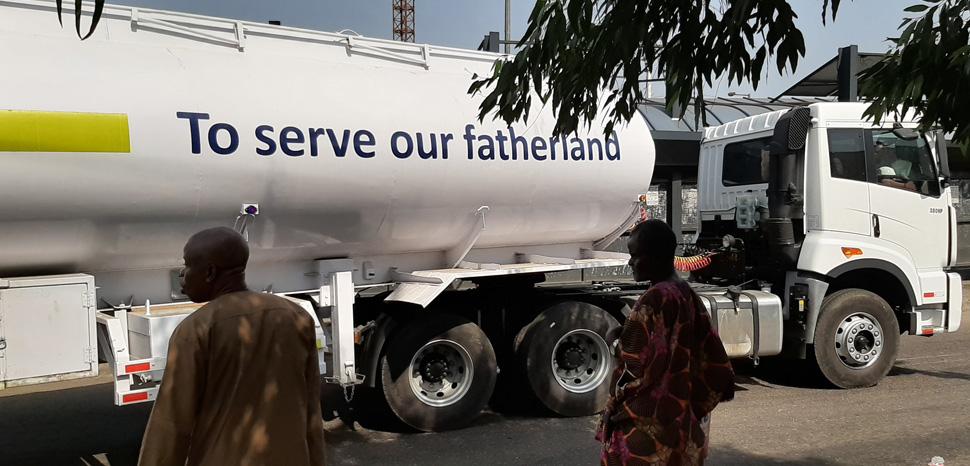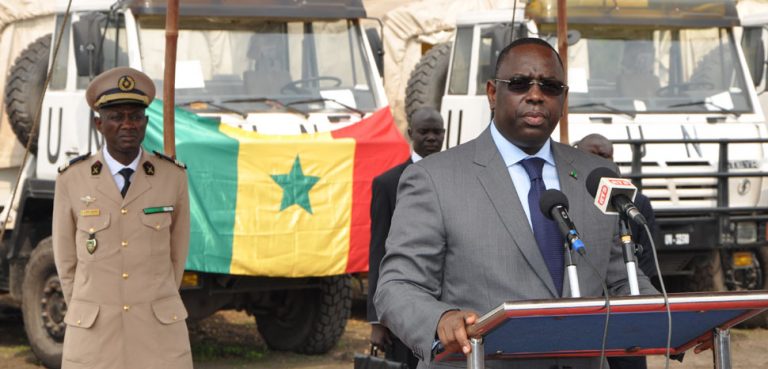The Republic of Nigeria possesses ample opportunity to contribute significant supply of oil and natural gas to global energy demand; however, because of internal hindrances, Nigeria lacks the capacity to utilize its natural resources. Between sectarian insurgencies in the Borno State, rampant government corruption, lack of energy and social infrastructure, and minimal financial incentive for foreign investors to operate, the vast energy natural resources are underutilized, and the internal security of the country continues to worsen. Despite being the world’s sixth largest producer of oil, and the largest producer in Africa, Nigeria continues to rely on the importation of refined petroleum products to provide for its basic energy demands, which demonstrates a lack of effectiveness in pervasive, widespread blackouts.
As corruption, poverty, and unemployment remain high for young Nigerians, Nigerian energy security incorporates illicit hydrocarbon trading as employment opportunities for Nigerian villages, which provides the oil needed for daily life. Direct targeting of Nigerian oil pipelines by militias, frequent electrical blackouts from faulty electrical grids, and aging oil refineries contribute to the country’s struggle with energy stability and productivity. For Nigeria to successfully utilize its energy resources and develop its economy, the government must address social, political, security, and financial choke points that are hindering Nigerian production and development.
Nigeria possesses an estimated 32.7 billion barrels of proven oil reserves, making it the largest producer in Africa. In addition to these 32.7 billion barrels, Nigeria also possesses 165 trillion cubic feet of natural gas, which includes 75.4 trillion cubic feet of non-associated gas. Mele Kyari, the group managing director of the Nigerian National Petroleum Corporation, indicated that 70% of Western African energy supply originates from Nigeria. Despite this, Nigeria continues to struggle in providing energy resources to the global market due to a lack of supply and security demands within the country. In 1956, Nigeria began its production of oil with 5,100 bpd; moreover, with continual expansion of energy infrastructure after joining OPEC in 1971, Nigerian capabilities of oil production steadily increased toward 2.32 million bpd of crude and condensate oil at $60 a barrel in 2019.
The importance of oil and gas to the Nigerian economy is substantial as the industry only represents 14% of the Nigerian economy; however, it accounted for 51% of government revenue and approximately 90% of export earnings in 2015, then growing to approximately 65% of government revenue and 88% of Nigeria’s foreign earnings in 2018. The importance of the Nigerian energy sector is tied to the growing population of Nigeria, the country’s expanding automobile industry, and growing agricultural demand and production. According to a United Nations report, Nigeria is projected to become the third most populous country, overtaking the United States, by 2050; therefore, it is imperative for Nigeria to address its political and social hindrances, including corruption and sectarianism, and to modernize its energy infrastructure to provide adequate energy to all Nigerians. For Nigeria, energy supply to meet a growing domestic demand incorporates private investments, operations, and companies in oil and LNG, electrical grids, hydropower, and thermal energy.
While Nigeria experienced growth in energy supply to meet domestic and global demands, the continuation of sectarian violence substantially decreases Nigeria’s potential for sustaining high levels of oil production, as well as providing funds toward infrastructure development, and implementing institutional reforms. The presence of violent militias, illicit hydrocarbon trading, and ethnic violence continually threaten Nigerian energy security by directly targeting supply from the Niger River Delta, which has been the main source of Nigerian energy deposits since 1956. In 2019, 416 acts of violence resulted in over 1,000 deaths due to substantial increases in organized crime syndicates, ethnic rivalries, political corruption, and cults. As indicated by the by the US Energy Information Agency, Nigerian oil production is significantly impacted by militant organizations operating within the Niger River Delta, which proliferated amid the ending of an amnesty program that provided education and employment opportunities to militants in return for the surrendering weapons and pledging to end attacks on Nigerian oil and gas pipelines.
To further the security dilemma, the Nigerian government is paralyzed politically due to the sectarian divide between northern and southern Nigeria, as the north is Muslim and the south is Catholic. As President Muhammadu Buhari looks to reduce corruption, there are indications that the southern portions of Nigeria, where the energy-rich Niger River Delta is located, may view President Buhari’s actions as sectarian-motivated rather than a political initiative to protect and develop Nigeria’s energy infrastructure.
In juxtaposition to the growth of armed conflict in the Niger River Delta, hydrocarbon theft continues deprives the Nigerian government of vital revenue and energy sources, therefore diminishing investor confidence. The actions of illicit hydrocarbon theft proliferated when oil prices rose above $100 and the Nigerian energy market became profitable; moreover, this energy black market is attributed to unemployment among the Nigerian youth and has expanded into five main categories of operations: small-scale theft and illegal local refining; large-scale illegal bunkering in the field; theft at export terminals; theft from fuel trucks; and oil tanker hijackings. Due to the Gulf of Guinea being relatively shallow, Nigerian offshore drilling locations, oil tankers, and terminals are subjected to piracy due to the lack of physical security. It is estimated that approximately 400,000 bpd are stolen from Nigerian energy terminals, refined in bush regions of the Niger River Delta. At the height of militia operations in 2016, the Niger Delta Avengers targeted Nigerian oil pipelines to force the government to distribute higher percentages of energy revenue to communities. These concentrated attacks on Nigerian oil and gas pipelines accumulated a loss of 1.5 trillion naira, or $3.8 billion in current inflation rates. The diminishing of Nigerian energy supply due to violent militias, political corruption, and hydrocarbon theft deter foreign and domestic investors from participating in the energy industry, thus leading to a dearth of necessary investments for modernizing energy output and expanding current infrastructure networks to provide for growing domestic demand. With the Boko Haram insurgency in the Borno State, the government is allocating billions of dollars and significant resources toward combating Islamic terrorism via the deployment of Nigerian security forces and the establishment of the Civilian Joint Task Force. However, as the insurgency continues to spread across northern Nigeria and beyond state borders, the Nigerian government still has not addressed the systemic social ailments that contribute to the insurgency: massive youth unemployment, high illiteracy and insufficient education facilities, minimal dispersing of energy revenue, a lack of electricity integration, flagging agricultural production, and dilapidated infrastructure.
Just as Nigeria continues to grapple with a physical security dilemma concerning its energy depots in the Niger River Delta, a lack of vital infrastructure is contributing to other security dilemmas on the supply and demand sides of the Nigerian energy sector. In addition to illicit trading of hydrocarbons, Nigeria’s aging infrastructure frustrates potential supply expansions meant to meet domestic demand. Approximately 55% of the population, around 95 million Nigerians, lacks access to adequate electricity while those who do have access experience constant power disruptions. As a short-term remedy, Nigerians have relied on self-power generation through solid biomass (wood, garbage, and waste). The depletion of infrastructure is compounded by expanding deficits, which the IMF has projected to reach 5% of Nigeria’s GDP and 40% of the 2019-2020 budget; thus, increasing the risk to the oil supply, both short and long term, if Nigeria fails to acquire the necessary private investments. According to the US Energy Information Administration, Nigeria would need to obtain a total of approximately $445 billion in 2018 inflation rates, with 80% of the investments being directed toward upstream oil and gas production. The next largest asset in need of extensive private investment are the country’s power grid networks, estimated to require some $55 billion in funding, and electricity infrastructure, which needs $21 billion.
Another complicating factor is the high levels of patronage and bureaucracy within Nigeria’s government, which often serve to block necessary structural reforms and initiatives. In 2014, an official government audit revealed an estimated $19 billion from oil and gas revenue was lost to corruption and hydrocarbon theft. Since 1960, an estimated $400 billion has been stolen through this illicit trading, funneled through a network of local militias, warlords, businessmen, politicians, and the military. Owing to this kind of energy corruption, Nigeria’s energy infrastructure is severely lacking.
To secure ample sources of petroleum and refined petroleum products in order to meet the growing energy demands of Nigerians, Nigeria has diversified its fuel imports (gasoline, kerosene, lubricating oil) from the Netherlands ($3.84B), Belgium-Luxembourg ($2.7B), the United Kingdom ($787M), Norway ($643M), and South Korea ($361M). The stark situation faced by Nigeria is that it’s the only OPEC member dependent on the importation of petroleum products to meet domestic energy demand. Nigeria only operates four refineries, which together are producing less than their capacities as the newest one is approximately 40 years old.
Regarding Nigeria’s electricity grid, Nigeria’s electrification rate is reported to be at 45%, which is far lower than Ghana (72%) and South Africa (85%). The problem for Nigeria is the lack of maintenance and repair, direct investments, and obsolete equipment, as energy distribution companies are not able to accumulate necessary revenue to pay full market costs, which in turn further hobbles energy suppliers. One of the main failures of Nigerian electricity generation stems from transmission losses during distribution. The main challenges here are chronic vandalism and targeting of electrical infrastructure by militias and insurgents, high commercial losses, and, again, the lack of investment in maintaining the overall infrastructure.
These institutional hindrances contribute to high inefficiency in energy production, producing long-term delays on investments due to low returns, and overrun costs due to price controls across the state-owned energy corporations that oversee Nigeria’s energy supply. The conditions of Nigeria’s electrical grid capacity and growing demands that correlate with fast population growth will undermine national security as Nigeria continues to experience growing sectarian tensions, primarily stemming from Boko Haram and militias operating around the Niger Delta. Nigeria’s electricity sector is primarily based on natural gas thermal plants; therefore, the production of electricity in Nigeria is directly connected to its natural gas production and disruptions. Approximately 85% of Nigerian power plants operate off of fossil fuel, while the remaining 15% depend on hydropower. Due to the concentration of oil and gas deposits, more favorable infrastructure, and revenue streams located in the Niger River Delta, the majority of the power plants are situated in southern Nigeria, leaving the remainder of Nigeria to depend on self-generation for electricity and fuel.
Environmental issues also hamper the success of Nigeria’s energy sector. Between 1970 and 2000, the Nigerian government recorded 7,000 oil spills; another 1,693 spills have occurred since 2007. 14,000 tons of crude oil spilled into the Niger River in 2009; there were 62 oil spills in 2017, and another 111 oil spills in 2018. The Nigerian environmental disaster is closely connected to delayed government action intended to keep multinational energy companies and Nigerian corporations accountable to environmental standards and protections, because Nigeria is heavily dependent on revenue from the supplying of Nigerian crude oil and liquefied natural gas. As environmental depletion continues in the Niger Delta, poverty levels increase in tow, and so too do attacks on Nigerian pipelines. Illicit hydrocarbon trading also increase as local militias and warlords compete over those finite natural resources which have yet to be impacted by worsening environmental conditions.
In addition to continual oil spills and a lack of environmental protection initiatives from the Nigerian government, the usage of solid biomass fuels exacerbates pollution. According to International Energy Agency projections for 2018-2030, in 2018, 67% of Nigerians (131,320,000 people) used a solid biomass fuel (wood, garbage, and waste) other than charcoal, LPG (Liquefied Petroleum Gas), electricity, gas, biogas, or biofuels as a means to cook food. By 2030, when Nigeria is projected to have a population of 263 million people, only 15% of the population will utilize electricity, gas, biogas, and biofuels as a means to cook food while 51% of the population will continue to use solid biomass fuel; 5% will use charcoal, and 8% will use LPG.
As President Buhari liberalizes the energy sector and address Nigerian deficits, COVID-19 and the failure of the OPEC+ meeting to slash oil production provided a substantial challenge to the Nigerian government’s revenue, as global oil demand remains significantly decreased. In fact, profits from crude oil sales are now expected to plunge approximately 80%. To ensure steady energy production, Nigeria agreed to produce 1.412 million bpd in May-June 2020, 1.495 million bpd in July-December 2020, and 1.579 million bpd between January 2021 and April 2022 per the OPEC+ agreements.
Despite ongoing social, economic, environmental, political, financial, and security dilemmas, the Nigerian government seeks to ensure crude oil supply and ample government revenue. Although struggling with the implementation of the Petroleum Industry Governance Bill, it is imperative for the Nigerian government to implement the PIGB to construct regulatory frameworks to allow easier investment and financial transparency. Through the PIGB, the Nigerian government will pursue deregulation of the state-controlled industry and liberalize the downstream petroleum sector so that Nigeria can open up Nigerian petroleum resources to market competition and better technological development. Per the PIGB, once it is passed by the end of 2020, the bill will provide Nigeria with a policy formulator to set the overall strategy and direction of the energy industry, establish new institutions to regulate the energy industry, commercial institutions to manage government assets and interests, and establish new support services.
The future of the Nigerian energy industry continues to remain rather uncertain as the government has a history of energy corruption and profiteering off oil revenues. It is plausible that government officials, businessmen, local warlords and community leaders, and members of the military that profited off the status quo may seek to hinder the full implementation and scope of the PIGB. It is important for Nigeria to address social ailments that deter investments into the energy industry while constructing institutions that expand energy infrastructure toward parts of the country that remain without adequate electricity. To boost Nigerian energy production and security of supply, Nigeria must examine and resolve grievances that contribute to the prolonging of the Boko Haram insurgency in northern Nigeria.
Repairing fragile social cohesiveness will allow the government to redirect resources and funds currently allocated toward anti-terrorism operations into energy infrastructure. Nigeria can protect its oil and gas pipelines and facilities, as it has demonstrated previously, via cooperation with at-risk communities in the Niger Delta and northern Nigeria. A viable solution for Nigeria is to resurrect amnesty programs and investments of oil revenue into the living standards of average Nigerians. Major contributions toward Nigerian energy insecurities spawn from a lack of development and opportunity for Nigerians to increase their living standards and income. To address the insurgency in the north, the Nigerian government must invest in and expand institutions that provide greater education opportunities and better agricultural practices, and advance economic reforms that produce a cycle of wealth accumulation and disbursement across the country rather than being hoarded along the coastline.
To move into a productive course and ensure the security of its energy infrastructure, Nigeria must tackle major income disparities that are exploited by militant organizations for recruitment and operations. Difficult though it may be, the Nigerian government must examine the disparities in Nigerian GDP per capita and promote better cooking practices via expanded access to clean fuels and electricity. It must also address the country’s lack of electrical coverage, which is unsuited to meet the demands of its growing population.
Currently, Nigeria is facing a two-front physical security dilemma that exacerbates Nigeria’s incapability to meet domestic and global demands with its substantial energy supply. This will force Nigeria to address conflicts and situations with flexibility if the country wants to garner foreign direct investment, boost investor confidence, and increase consumer spending and consumption.
The Nigerian government must support higher environmental protection standards and penalties for environmental disasters and negligence. As energy corruption remains a central obstacle for the Nigerian government, the risks toward the Nigerian energy supply are all domestic with the exception of the coronavirus pandemic. The risks to Nigerian stability of energy supply to meet domestic demand are all internal and centered around decades of government negligence, corruption, and mismanagement. To clean up the Niger River Delta, a viable solution is implementing environmental protection laws to hold multinational and national energy companies accountable for oil spills and negligence that destroy lands utilized for food, trading, and transportation. Another recommendation is to hold negotiations with multinational and national energy companies in the Niger River Delta, and to hire Nigerians that live in proximity to energy infrastructure in order to produce employment opportunities and reduce the militancy that costs Nigeria approximately 400,000 bpd and billions of dollars in lost revenue. Nigeria must invest in Nigerians to stunt the attraction toward militant organizations, which in turn keep vital foreign direct investment away and perpetuate a cycle of poverty.
Finally, as Nigeria places its focus on the passing of the Petroleum Industry Governance Bill, depoliticizing the usage of energy resources for capital gain and influence encourages some hope from domestic and foreign investors with regard to the long-term modernization process of Nigeria’s energy sector. With a heavy emphasis on Nigerian refineries, processing plants, and electrical power stations and grids, the Petroleum Industry Governance Bill seeks to establish the foundations required to acquire necessary modern equipment and investments to begin the process of supply security and easier access to electricity. Nigeria must demonstrate and reassure investors that the supply of vast energy resources can be secured and stabilized so that growing domestic demand, along with growing African and global demand, for oil and LNG can be met by a newly overhauled Nigerian energy sector.




